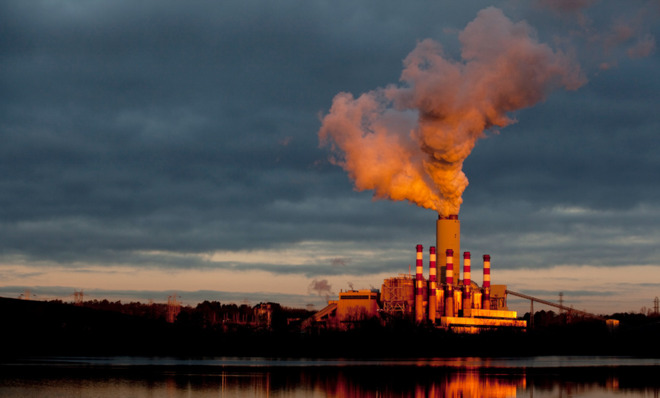Now is the time to drive a stake through the heart of Big Coal
Coal is on its way out, but the EPA needs to accelerate its demise


A free daily email with the biggest news stories of the day – and the best features from TheWeek.com
You are now subscribed
Your newsletter sign-up was successful
This week, the Energy Information Administration, a division of the Department of Energy, offered some heartening news for anyone who cares about the environment. The EIA's adjusted forecast for U.S. coal-fired power plants showed that 60 gigawatts of capacity would be retired by 2016, up from its earlier estimate of 40 gigawatts.
It's the latest evidence that coal, the most venal offender when it comes to climate change, is on its way out. But it also means the Environmental Protection Agency, which is in the midst of developing new rules for carbon pollution from existing coal-fired power plants, must accelerate its anti-coal efforts if we are to have a chance of preserving a decent society.
Let's step back and examine why coal use is declining in the first place. First, new EPA rules on mercury and air toxics are coming down the pipe, which mean upgrades are too expensive to be worth it for the country's oldest plants. Here's the EIA:
The Week
Escape your echo chamber. Get the facts behind the news, plus analysis from multiple perspectives.

Sign up for The Week's Free Newsletters
From our morning news briefing to a weekly Good News Newsletter, get the best of The Week delivered directly to your inbox.
From our morning news briefing to a weekly Good News Newsletter, get the best of The Week delivered directly to your inbox.
To comply with MATS [mercury and air toxics standards], it is assumed that all coal-fired plants have flue gas desulfurization equipment (scrubbers) or dry sorbent injection systems installed by 2016. Retirement decisions are based on the relative economics and regulatory environment of the electricity markets. A plant may retire if higher coal prices, lower wholesale electricity prices (often tied to natural gas prices), or reduced utilization make investment in equipment like scrubbers uneconomical. [EIA]
Second, natural gas is out-competing Old King Coal on price.
In the end, coal is almost certainly doomed, EPA regulations or no. Solar photovoltaics, for one, have been absolutely crashing in price for the last few decades, falling 99 percent since 1977, a trend that shows no sign of stopping. Solar PV is at or past grid parity — meaning price-competitive with grid power — in sunnier places like Australia and the southwestern United States. Furthermore, it is projected to reach full grid parity almost everywhere in the U.S., without subsidies, within the next 3 years.
Wind's prognosis is not quite so stunning, but is still strongly positive over the long term. Eventually, coal will just be too expensive, even granting its swindling unpaid-for negative economic consequences.
But make no mistake, coal is still huge — 37 percent of electricity generation as of 2012. This means it's not possible to force all coal power to switch off tomorrow, because replacements need some time to scale up. And this also underscores the fact that the EPA's forthcoming rules for existing plants (it has already released rules for new plants) will determine the fate of coal power over the medium term — and possibly the fate of the planet.
A free daily email with the biggest news stories of the day – and the best features from TheWeek.com
There is every reason for the EPA to be very aggressive. The natural gas boom won't last forever, and if reserves prove to be smaller than expected, coal's relative position could be restored, if only for a few decades. But we don't have a few decades; we must hit peak total worldwide emissions within the next couple years, and then start cutting them, rapidly.
We won't have a prayer of doing our part unless we make sure coal is good and dead, and soon.
Ryan Cooper is a national correspondent at TheWeek.com. His work has appeared in the Washington Monthly, The New Republic, and the Washington Post.
